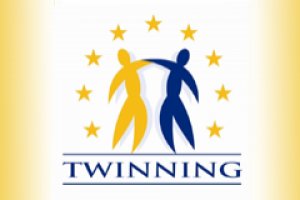
Twinning
Project Description
Twinning projects bring together public sector expertise from EU Member States and beneficiary countries with the aim of achieving concrete mandatory operational results through peer to peer activities.
Specific Objective
Expected Results
The work plan of a Twinning project usually foresees short-term and medium-term expert missions, training events in the partner administration, and awareness-raising visits in the Member States.
The partner administration in a Twinning project is a public administration with sufficient staff and absorption capacity to work with a Member State institution having a similar structure and mandate. The partner country must mobilise its staff, demonstrate enduring commitment and ownership, adaptability, and take on board changes and best practices in a sustainable way. Twinning is not a one-way technical assistance instrument but a joint commitment where success is a common achievement.
Twinning projects are implemented with a view to the mandatory results to be achieved. They are usually articulated in components corresponding to the expected results, and foresee a number of activities including workshops, training sessions, expert missions, study visits, internships and counselling. Twinning relies on the ‘learning by doing’ principle and sharing of best practices.
Project map
Photo gallery
PROJECT DETAILS
More campaign pages:
Interested in the latest news and opportunities?
This website is managed by the EU-funded Regional Communication Programme for the Eastern Neighbourhood ('EU NEIGHBOURS east’), which complements and supports the communication of the Delegations of the European Union in the Eastern partner countries, and works under the guidance of the European Commission’s Directorate-General for Neighbourhood Policy and Enlargement Negotiations, and the European External Action Service. EU NEIGHBOURS east is implemented by a GOPA PACE-led consortium. It is part of the larger Neighbourhood Communication Programme (2020-2024) for the EU's Eastern and Southern Neighbourhood, which also includes 'EU NEIGHBOURS south’ project that runs the EU Neighbours portal.

The information on this site is subject to a Disclaimer and Protection of personal data. © European Union,
